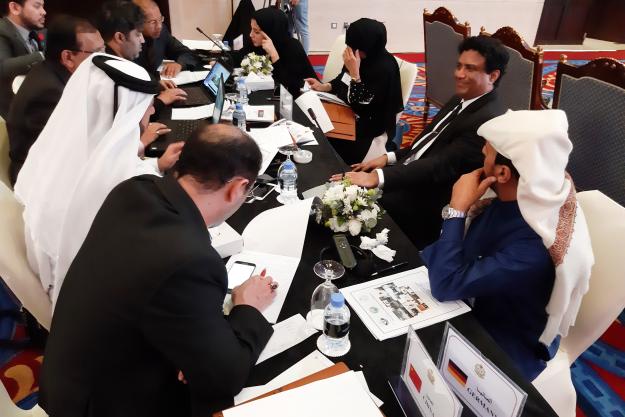
Chemical safety and security specialists at an OPCW seminar in Doha, Qatar
THE HAGUE, Netherlands — 4 March 2019 — Chemical safety and security specialists from Asia shared expertise and experiences during a seminar of the Organisation for the Prohibition of Chemical Weapons (OPCW), held in Doha, Qatar, from 26 – 28 February.
The Seminar on Chemical Safety and Security Management for OPCW Member States in the Asian Region was organised in collaboration with the National Committee for the Prohibition of Weapons (NCPW) of Qatar.
In his opening statement, NCPW Chairman, Brigadier General Hassan Saleh Al-Nesf, placed the event within the wider context of “the challenges facing the world in general, and our region in particular”. He underlined the importance of chemical safety and security for economic and technological development, noting that the “chemical industry is one of the most important pillars” of such growth.
Acting Director of the International Cooperation Division of the OPCW, Mr Shawn DeCaluwe, stated in his opening speech that, “Since its inception in 2012, the Chemical Safety and Security Programme in Doha has evolved into a leading international forum connecting top experts in the field. The number of participants and the level of expertise represented here indicate strong cooperation between the OPCW and its Member States, the cooperation that continues to strengthen chemical safety and security in Asia.”
Attendees shared their views on new approaches to various aspects of chemical safety and security, the development of national policy and legislation on chemical safety, and security and risk management.
Experts also discussed the role of academia in chemical processes safety management, alarm management, vulnerability assessment, and human factor analysis on chemical safety and security management. They also underlined the importance of practice-sharing, and education and outreach in building strong chemical safety and security worldwide.
The seminar brought together 66 participants from 16 OPCW Member States, including representatives from National Authorities, the chemical industry, industry associations, policy makers and academia.
The attendees represented the following countries: Bangladesh, Belgium, China, Germany, India, Indonesia, Iran, Jordan, Malaysia, Pakistan, Philippines, Qatar, Republic of Korea, Sri Lanka, Tajikistan, and Vietnam.

Background
As the implementing body for the Chemical Weapons Convention, the OPCW, with its 193 Member States, oversees the global endeavour to permanently eliminate chemical weapons. Since the Convention’s entry into force in 1997, it is the most successful disarmament treaty eliminating an entire class of weapons of mass destruction.
Over 96% of all chemical weapon stockpiles declared by possessor States have been destroyed under OPCW verification. For its extensive efforts in eliminating chemical weapons, the OPCW received the 2013 Nobel Peace Prize.
